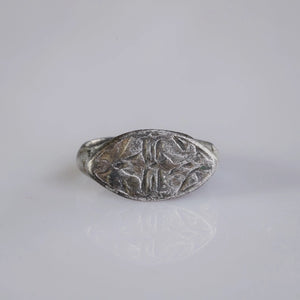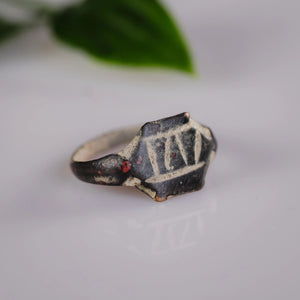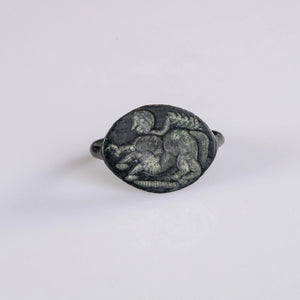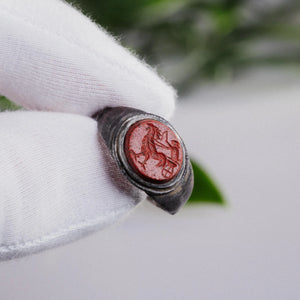Interesting facts
If you’ve ever delved into the world of J.R.R. Tolkien, you might have wondered about his views on the Roman Empire. Given his profound knowledge of history, languages, and mythology, it’s a natural question to ask. Did Tolkien admire the Roman Empire as a grand example of unity and power? Or did he harbor a more complex or even critical attitude toward it? Recent research and discussions among Tolkien enthusiasts and scholars reveal that Tolkien’s feelings toward the Roman Empire were far from simple. Instead, they paint a nuanced picture that helps us understand not only Tolkien’s historical perspective but also the values underpinning his beloved Middle-earth saga.
A Scholar’s Deep Roots in History and Language
To begin unpacking Tolkien’s relationship with the Roman Empire, it's key to remember that his background was steeped in a profound admiration for the medieval period and its cultures, languages, and literatures. Tolkien was a philologist and professor, deeply immersed in Old English, Old Norse, and Latin studies—yet his narrative sensibility clearly favored the medieval era over antiquity. The Roman Empire, a colossal civilization that shaped European history for centuries, was certainly within his knowledge. However, Tolkien's creative imagination found its true inspiration in medieval Christendom, with its rich tapestry of fragmented kingdoms, spiritual unity, and chivalric ideals.
For those who wish to own a tangible piece of the ancient world, consider exploring the collection of authentic Roman silver rings available at auroraantiqua.store. These pieces serve as a bridge to the mystery and allure of Rome's ancient days, offering a connection to a past that might have sparked Tolkien's vast imagination.

This medieval preference is no mere whim. Tolkien’s academic work reveals a heartfelt connection to the languages and stories of the Middle Ages, which to him represented a living cultural heritage. While the Roman Empire’s Latin legacy furnished some of the language tools he wielded, his literary heart beat strongest for the confluence of myth, legend, and faith found throughout the medieval world. This passion shines through in his works, where the echoes of Anglo-Saxon poems and Norse sagas form the foundation of his storytelling, far more than the grand historical sweep of ancient Rome.
A Medieval Mindset in a World of Empires
What sets medieval Christendom apart from the Roman Empire? At its core, the medieval Christian social order thrived on a decentralized political structure—countless small realms, principalities, and duchies, often ruled by competing lords—yet spiritually united by the Church’s overarching authority. This union was less about centralized political power and more about shared faith and moral values. In contrast, the Roman Empire epitomized absolute authority, with power concentrated in the emperor’s hands, stretching over vast and diverse territories.
Tolkien favored this medieval flurry of states and communities, united not by sheer force but by shared belief and collective identity. This preference is evident in his writings, where he evokes a medieval flavor rather than a Roman imperial one. For example, Tolkien deliberately avoided using certain Latinate terms, including “empire,” within the lore of Middle-earth. The reason was not mere stylistic choice but a conscious effort to capture the spirit of a past age marked more by regional diversity and spiritual cohesion than by imperial grandeur.
One might say that Tolkien’s worldview reflects a skepticism toward centralization, especially when it comes with the harsh realities of political domination. The fractured political landscape of medieval Europe, full of alliances and rivalries, gave rise not only to tension but also to resilience, local identity, and cultural flourishing. His Middle-earth—which is made up of varied kingdoms like Rohan, Gondor, and the Shire—mirrors this decentralized vision. Each realm has its own customs, languages, and histories, yet they can unite against common threats without surrendering their distinct identities.
Critiquing Empire: The Dark Side of Absolute Power in Middle-earth
It would be misleading to think Tolkien was indifferent or naïve about the consequences of empire. Quite the opposite: throughout his work, he offers a critical reflection on the dangers of empire and the seductive corruption that absolute power entails. The Rings of Power are perhaps the most potent metaphor for this theme. They embody the allure of dominance but also the inevitable decay and tyranny such ambition breeds.
Take the One Ring, for instance. Forged by Sauron, a dark lord bent on domination, it symbolizes the dark heart of imperialism—centralized, oppressive, and destructive. Tolkien’s portrayal goes beyond fantasy; it echoes real historical and moral concerns. It is a wary meditation on how power can corrupt even the noblest intentions and how empire, with its promise of unity, might also usher in subjugation and loss of freedom.
The seduction of power, as Tolkien shows, is never just about force. It’s about promises of order, peace, and progress—offered at the cost of free will and diversity. The One Ring’s ability to corrupt its bearers is a haunting reminder that even heroes are vulnerable to the lure of controlling others. Figures like Saruman, who begin with seemingly noble goals, fall victim to the temptation of centralized authority and control, echoing the tragic falls of historical rulers seduced by imperial ambition.
This critical stance mirrors Tolkien’s conservative and traditionalist view. He valued the preservation of culture and local autonomy, eschewing imperial domination that obliterates diversity and spiritual richness. Tolkien’s Middle-earth champions the resilience of smaller communities and the strength found in humble, fragmented societies connected by a shared moral compass.
The hobbits, with their quiet, unassuming lives in the Shire, perhaps serve as the finest emblem of this preference. They are far from imperial grandeur, instead embodying simplicity, close-knit community, and a life attuned to nature and tradition. Their resistance to the pull of power and their role in the ultimate defeat of Sauron highlight Tolkien’s belief in the strength of the small and the local over the might of centralized empire.
Why Tolkien’s View Matters Today
Celebrate History with Timeless Artifacts
Discover Your RingWhy did Tolkien choose to avoid the term "empire" in his writings about Middle-earth?
Tolkien consciously avoided using the term "empire" in his writings to maintain the medieval flavor essential to his world-building. He preferred to depict a world with decentralized governance, spiritual unity, and cultural diversity, which contrasted sharply with the centralized, authoritarian image of traditional empires. This choice reflects his belief in the strength and resilience of smaller communities bound by shared values and moral principles rather than by the consolidation of power under a singular authority. By doing so, Tolkien highlighted the importance of preserving local identities and traditions while promoting moral unity over sheer dominance.
At a time when conversations around identity, sovereignty, and cultural preservation dominate public discourse, Tolkien’s work offers a reminder that unity need not mean uniformity. His vision of a world where alliances are forged in shared values rather than imposed domination encourages reflection on how societies today manage diversity and common purpose.
Furthermore, Tolkien’s stories caution against the dangers of totalizing systems, whether political or ideological. The transformation of the once-noble kingdom of Númenor into a hub of imperial ambition that ultimately leads to its downfall stands as a chilling allegory of how empires can overreach. This narrative resonates against historical examples of imperial rise and collapse, urging humility and vigilance in the wielding of power.
One might say Tolkien invites us to reconsider what kind of “empire,” if any, history should remember with approval. Is it the cold, iron fist of imperial conquest? Or a more modest, decentralized federation of peoples bound by shared values and mutual respect—like the alliance between the Free Peoples of Middle-earth?
A Single Mention in the Shadows: The Roman Empire’s Imprint
Interestingly, Tolkien’s Middle-earth saga contains only a fleeting whisper of the Roman legacy, filtered and transformed through his medieval sensibility. The very structure of his world seems to reject the model of empire in favor of a historical vision where local identities, ancient traditions, and spiritual unity coexist without an emperor’s thumb pressing down.
As an example, think of the realms of Gondor and Rohan, often linked to historical analogues. Gondor carries echoes of Byzantine and Roman grandeur yet also suffers the pangs of decline and loss wrought by centralized power stretched too thin. Its downfall warns more than it celebrates imperial might.
Gondor’s capital, Minas Tirith, evokes images of a proud city standing sentinel on the borders of a fading empire, bearing scars from wars past and struggles within. Its kingship is marked by lineage and tradition rather than mere conquest, and the stewardship that follows reflects Tolkien’s concerns about responsible, morally grounded leadership.
Meanwhile, Rohan recalls a more tribal and feudal society, with its own codes of honor and community bonds, reminiscent of Anglo-Saxon England rather than Roman imperial rule. The people of Rohan are fiercely independent and heroic, embodying a warrior culture deeply connected to their land.
It’s worth noting that Tolkien’s distaste for the word “empire” in his legendarium is no mere accident. He consciously steered clear of this term to preserve the “medieval flavor” essential to his world-building. This subtle linguistic choice speaks volumes about his deeper worldview.
An Unexpected Mention: In one text, Tolkien did write the phrase “Roman Empire,” but it was in a scholarly, non-fiction context, not tied to his fiction. It’s a testament to how carefully he separated his academic research from his imaginative creation.
The emotional core of Tolkien’s attitude toward Rome may be best captured by his emphasis on humility, stewardship, and moral responsibility—values he saw embodied more fully in medieval Christendom than in the Roman imperial project.
Moreover, Tolkien’s writings suggest a focus on the cyclical nature of history—empires rise and fall, but true human (or hobbit) values endure beyond political upheavals. This perspective offers a comforting contrast to the seeming permanence of imperial power, highlighting the fragile yet persistent beauty of local cultures and traditions.
Lessons from the Rings of Power: A Closer Look
Delving deeper into the symbolism of the Rings of Power helps illuminate Tolkien’s complex relationship with empire. These artifacts, while fantastical, serve as powerful allegories about governance, temptation, and the boundaries of control. Discover ancient Roman rings for a touch of history unraveling in Tolkien's lore.
The three Elven rings, free from Sauron’s direct influence, symbolize preservation, healing, and beauty. Their bearers strive to protect and nurture their realms without domination, embodying an ideal of leadership grounded in care rather than conquest. In contrast, the Rings given to Men and Dwarves bring ruin or obsessive greed, illustrating how the lust for control corrupts and devastates.
Through these contrasting rings, Tolkien explores different visions of power. The desire for empire, seen in Sauron’s One Ring, promises order but delivers enslavement and decay. The Elven rings hint toward stewardship and respect for natural and cultural heritage, aligning neatly with Tolkien’s medieval-inspired preference for decentralized and morally guided communities.
The failure of Sauron’s empire in Middle-earth is not just a plot device but a moral lesson. It warns that empires built on fear and unchecked ambition are doomed to fall, while those that cherish freedom, diversity, and humility possess an enduring strength. Explore Roman-inspired jewelry to understand the layers of history.
Embedded within these tales is Tolkien’s profound respect for personal freedom and moral agency, which he saw as endangered by overarching, central powers. It’s here that we see a reflection of his own times—the dangers of totalitarian regimes and the resilience of individual and cultural identity are themes he weaves into his narratives.
His writings hold up a mirror to the 20th century's political realities just as much as they recount epic battles of long-forgotten lands. The relevance of these themes to modern readers lies in their universally applicable lessons about power, ethics, and the beauty of cultural and moral diversity.
The Role of Faith and Myth in Tolkien’s Perspective
Another layer to Tolkien’s attitude toward the Roman Empire lies in his deep Christian faith and his affection for myth. Unlike the historical Roman Empire, which was largely secular and often imposed order through law and military might, Tolkien’s Middle-earth is suffused with spiritual meaning.
The spiritual unity of medieval Christendom, with its belief in divine providence and moral order, informs Tolkien’s storytelling. His narratives do not depict empire as a secular machine but rather as a contest between light and darkness, good and evil, freedom and domination. This moral framework is strongly Christian, aligning more with medieval ideals than with pagan antiquity.
Tolkien’s Elvish languages and lore reflect this mythic take on history—where time is layered with deeper meaning and where the struggles of nations mirror spiritual battles. This approach underlines why Tolkien chose not to celebrate the Roman Empire outright; it simply did not fit into his vision of a world where myth and morality intertwine.
Moreover, Tolkien’s affection for local traditions, oral storytelling, and heroic literature highlights his belief that history is alive with stories—many of which get lost or overshadowed by grand empires. Through Middle-earth, he gives voice to those smaller stories, celebrating the quiet heroism of the common folk rather than the triumphs of emperors.
Conclusion: A Complex Relationship Defined by Contrast
So, did Tolkien like the Roman Empire? The honest answer is that he admired some aspects of its historical significance but ultimately regarded the empire with a critical eye. He preferred the spiritual fabric and political realities of medieval Christendom, which provided the cultural and moral backdrop for his entire literary creation.
Through his Middle-earth, Tolkien explored the perils of empire—the loss of freedom, the corruption of power, and the fragility of civilization. His nuanced view defies simple categorization, intertwining knowledge, faith, and creative imagination in a thoughtful examination of human history.
For readers who love diving into Tolkien’s works, understanding this subtle critique offers fresh insights. It enriches our appreciation for the world he built—one where history’s shadows serve not to glorify empire but to warn and inspire.
The Rings of Power evoke this tension perfectly, hinting at the dangers of centralized power and the enduring hope found in decentralized, community-based resilience. Tolkien’s fictional world becomes a mirror reflecting his careful consideration of history’s lessons and his heartfelt longing for a world where moral unity trumps brute force.
The story of Tolkien and the Roman Empire, then, is one of cautious engagement, profound respect for medieval spirituality, and a subtle but firm critique of imperial ambitions that threaten freedom and diversity. It’s a theme that continues to resonate, reminding us that the past is never just history — it’s a living conversation with our hopes and fears today.
In embracing the complex tapestry of history, myth, and morality, Tolkien offers more than just fantasy—he hands us a mirror to reflect on how we wield power and preserve what truly matters. His Middle-earth whispers that sometimes, the greatest strength lies not in dominion over vast lands, but in the courage of small communities to live faithfully and freely.
Did Tolkien admire the Roman Empire?
Tolkien appreciated certain aspects of the Roman Empire's historical significance but leaned more towards the ideals and traditions of medieval Christendom.
How did the Roman Empire influence Tolkien's Middle-earth?
The Roman Empire did not directly influence Middle-earth; Tolkien preferred medieval inspirations, focusing on local identities and spiritual unity.
What can I learn from Tolkien's perspective on empires?
Tolkien's works encourage the appreciation of cultural diversity and caution against centralized power, a reflection of his preference for medieval societies.




